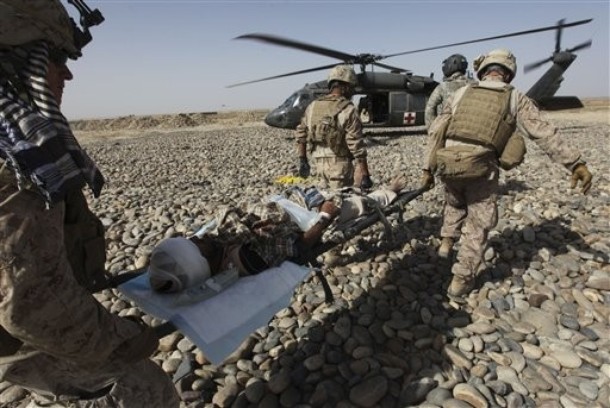
Everyone's aflutter over the new Bob Woodward tome documenting rifts in the Obama administration's war cabinet over the war in Afghanistan. In the early write-ups it appears that key members of the administration had serious misgivings about the counter-insurgency strategy championed by the military and many outside experts. Writing in Foreign Affairs, Ben Connable explains what is necessary for the U.S. to stabilize Afghanistan, and reading it, you understand the misgivings of folks like Holbrooke and Eikenberry:
If the United States seeks stability in Afghanistan, its strategy will have to deal with these realities. There can be no shortcuts; although it is possible to quickly defeat insurgents, dealing with root causes, a multitude of combatants, and havens will take time. And it will be expensive: the costs of such an effort are incalculable, since it is impossible to predict how long the violence in any insurgency will drag on.Nevertheless, a careful study of insurgencies over the last 50 years suggests that what is needed in Afghanistan now is the patient application of a traditional counterinsurgency campaign for years to come. If done well, a long-term campaign could lead to a stable Afghanistan that is so inhospitable to the major Afghan insurgent groups that they wither into irrelevance or are forced to the bargaining table. Enduring stability in Afghanistan and a consequent shift in popular support for the government could, on balance, negate the strength the Taliban continues to draw from its sanctuary in Pakistan. And although a successful counterinsurgency campaign in Afghanistan will not ultimately solve the problem of terrorist sanctuaries in Pakistan, neither do any of the other proposed policy options.
In other words, no one knows how to dry up terrorist sanctuaries in Pakistan. But even with a stable Afghanistan, secure safe havens in Pakistan will allow al-Qaeda to strike at American targets, even if fitfully and largely unsuccessfully. It seems to me that if we can't safeguard the U.S. from terrorist attacks emanating from Pakistan no matter what we do in Afghanistan, than we should not pursue a strategy with the highest costs associated with it.











